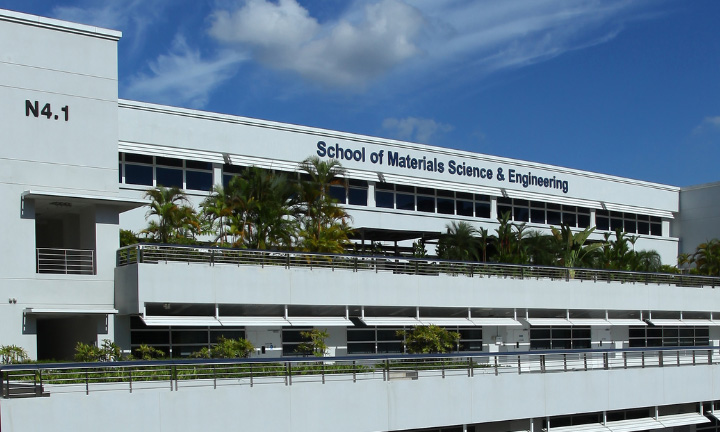Machine-Learning Accelerated Computational Methods Development for Electrochemical Reactions at Materials Interfaces by Asst Prof Xu Shenzhen

24 Jul 2025
02.30 PM - 03.30 PM
Alumni, Current Students
NTU MSE Seminar Hosted by Associate Professor Li Shuzhou
Abstract
Interfacial electrochemistry is fundamental to the development of green energy technologies. Particularly, electrochemical reactions at materials’ interfaces determine the performance and life time of various energy-conversion/storage systems. Atomic-scale simulations act as indispensable tools to provide a microscopic understanding for these complicated processes. However, several challenges (including exact descriptions of electrochemical open systems, the rare event problem, etc.) limit the applicability and reliability of simulations. In this talk, I will introduce our group’s recent efforts on theoretical methods development for interfacial reaction simulations, further assisted by machine-learning force fields (MLFF). Application areas of electrocatalytic proton-coupled electron transfer (PCET) and battery systems will be the focus of this presentation. Specifically, an integrated framework based on the grand canonical path integral Monte Carlo algorithm is developed to exactly treat PCET considering the nuclear quantum effects under a constant potential condition. Regarding the simulation of a battery cell with counter electrodes, we also propose a novel methodology combining the MLFF with the charge equilibration method to apply bias potentials in a virtual battery. Our studies thus shed light on applications of new computational methods in broader scenarios of electrochemical systems with a good balance of efficiency and accuracy.
Biography
Assistant Professor Xu Shenzhen
Peking University (Beijing, China)
Dr. Shenzhen Xu is an Assistant Professor from School of Materials Science and Engineering at Peking University (Beijing, China). He received his Bachelor degree in physics at Tsinghua University in 2011 and Ph.D. degree in materials science in 2017 from University of Wisconsin – Madison under the supervision of Prof. Dane Morgan, and then worked as a postdoc in Prof. Emily Carter’s group at Princeton University from 2017 – 2020. After joining PKU as an independent investigator, his research group focuses on theoretical methods development for modeling proton-coupled electron transfer in electrocatalysis, and multi-scale simulations of interfacial systems in battery materials.

